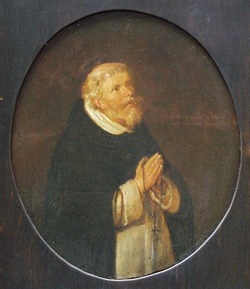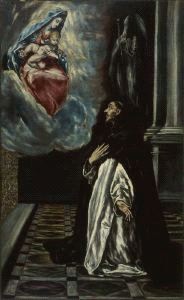
In the heat of his love for God, he sometimes passed whole nights in pouring forth prayers and chastising his body, to which he never gave rest but in leaning against a stone or lying upon the ground. He was sent back to his own country, and on the way, founded a very large house of his Order at Friesach; and soon afterwards another at Krakow. In other provinces of the kingdom of Poland he founded four others, and it passeth belief what success he had with all kinds of men, by his preaching of the Word of God, and the innocency of his life. Not a day passed wherein he did not display some bright gift of faith, godliness, or innocency.





